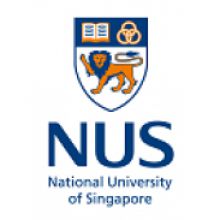With all the talk of internationalisation in higher education, even an industrial strategy for the internationalisation of education just a couple of years ago, it seems odd that things global barely get a mention in the Green Paper, Fulfilling our potential: teaching excellence, social mobility and student choice, except, of course, where it sees our universities as part of the UK’s export industry.
Access to education across borders has never been easier — if you have rich parents, that is. In the same way that UK universities promote their wares across the world, recruiting high fee paying international students, overseas universities are increasingly doing the same in the UK. Earlier this year, 4,000 potential university students attended the USA College Day fair at the Kensington Town Hall, where a record 170 American universities eagerly awaited them. The recently published IIE Open Doors 2015 reports that in the 2014-15 academic year, almost 11,000 British students were already studying at US universities.
And of course it’s not just American universities that are trying to lure UK students. Maastricht and other Dutch universities have been actively recruiting since before the introduction of the £9,000 annual tuition fees in English universities in 2012. According to a study for the Department for Business, Innovation and Skills back in 2010, there was already a higher proportion of British students doing their entire degrees abroad than Chinese or Indians.
Rather than seeing this trend for international study as a threat, we should welcome it as an opportunity for British students to engage more internationally and develop global skills, in the same way that international students are doing in the UK. It will also act as a driver for development and, in turn, improve quality in UK universities as our parochial view of degree programme competition develops to include universities beyond our shores.
We don’t need more expensive and bureaucratic machinery to promote competition and improve quality – the competition is on our doorstep and could be made more accessible if tuition fee and study loans were transportable internationally: a UK Overseas Study Voucher. Ministers and vice-chancellors can’t continue to use the rhetoric of global competition while, at the same time, wanting to retain a fundamentally protectionist environment for undergraduate study within the UK.
In the same way that American students can use US Federal Aid to study in the UK and elsewhere, a UK Overseas Study Voucher would give British students the opportunity to a study at a recognised university anywhere in the world. In a stroke this could achieve a number of the Green Paper’s core aims, including encouraging greater competition, raising standards and providing a greater focus on graduate employability.
It might even deliver savings for the Exchequer as well as students. While the tuition fees at the University of Reading’s Malaysia Campus may be only marginally less than those charged in the UK, living expenses are probably less than half of those in Reading. And for those searching for even lower tuition fees, why not try one of the world’s top-200 ranked universities in continental Europe that teach courses in English, or one of the many US universities that, as well as lower fees, also offer generous scholarship packages? Or, for the more adventurous, how about somewhere like the University of Singapore or the University of Hong Kong, which offer courses in English and offer a gateway to the allure and challenge of Asia?
Vincenzo Raimo is pro vice-chancellor (global engagement) at the University of Reading.
Register to continue
Why register?
- Registration is free and only takes a moment
- Once registered, you can read 3 articles a month
- Sign up for our newsletter
Subscribe
Or subscribe for unlimited access to:
- Unlimited access to news, views, insights & reviews
- Digital editions
- Digital access to THE’s university and college rankings analysis
Already registered or a current subscriber? Login








